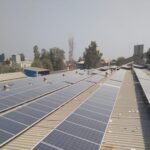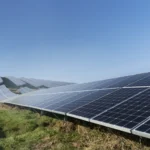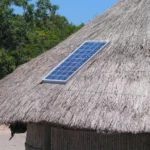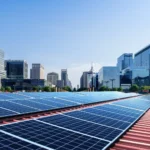Blame it on Sun! Average Solar PLFs not satisfactory
Blame it on Sun! Average Solar PLFs not satisfactory
Poor performance of solar projects has become a cause of worry recently. As a benchmark the large field based projects were expected to generate around 1500 kWh of electricity for each KW of solar panels installed in the Northern India. However the performance of these projects has not been satisfactory. The table below shows the actual number of units generated per kW of solar panels as recently announced by the Agencies for different Northern India states for the year 2012-13.
| States | Capacity (MW) | 2012-13 (PLF) | 2012-13: Equivalent kWh generated per kW |
| Haryana | 7.8 | 14.50% | 1270.2 |
| Punjab | 6 | 10.50% | 919.8 |
| Rajasthan | 11 | 16.00% | 1401.6 |
| Uttar Pradesh | 7 | 8.16% | 714.816 |
| Uttarakhand | 5 | 14.70% | 1287.72 |
Few solar plants have not reported data for all the months for various reasons. Overall the data has released for 69 power plants and the corresponding average PLFs of all the states for the year 2012-13.
Of course some of these projects have generated electricity as expected but many have not.
The performance of the project in terms of electricity generation depends on the quality of panel. It implies that a 15% efficiency panel should convert 15% of the radiation falling on it to the useful electricity. Also polysilicon panels should not be having performance degradation more than 0.7% to 1% year on year.
The electricity generation will also depend on the sun radiation available in that year.
Experts say that the generation also depends on the tilt of the panels installed. The radiation available on a flat surface would be significantly lower than that on the tilted surface.
Jury is still out to understand what caused the poor performance of these projects. A high radiation with humid condition does not support high generation for example.
Year 2013 remained a year when Indian witnessed an extra-ordinary monsoon. PID problem of Indian solar panel manufacturers still remain and need to be resolved.
For the time being we can blame it on Sun! Sun was not kind enough to provide sufficient radiation. Hopefully we get better radiations and better generation in future years and for the two years that have already passed.
Suggested Articles

Why Go Solar: A Complete Guide to Solar Power for Homes and Industries
Switching to solar energy offers significant savings and environmental benefits. This guide explains why going solar is a smart choice, covering financial incentives, reduced electricity bills, and positive impacts on the planet.

Researchers Develop Technique to Improve Durability of Perovskite Solar Cells
Researchers have introduced a new technique to enhance the durability of perovskite solar cells, paving the way for more reliable and long-lasting renewable energy solutions.

The Rise of Clean Energy: Solar Energy Trends in 2023
The solar energy industry is on the rise, as the demand for clean and renewable energy sources continues to increase. 2023 is shaping up to be a big year for the solar energy sector, as new technologies and innovations are expected to drive growth and expand the reach of solar energy.

Solar Energy Myths vs. Facts: What You Should Know
Solar power myths often mislead homeowners. Learn the facts about cost, efficiency, and reliability of solar energy.

Rajasthan Rooftop Solar Subsidy: What Homeowners Need to Know
Rajasthan homeowners can save big with the 2025 rooftop solar subsidy. Learn about the updated rates, eligibility criteria, and benefits to make your switch to solar more affordable.

Law Change Makes It Hard to Receive Compensation for Solar Developers
A recent law change creates hurdles for solar developers seeking compensation, impacting project viability.

China’s Solar Industry Poised for Continued Growth in 2023 and Beyond
China’s solar industry is set for continued growth in 2023 and beyond, driving global renewable energy expansion and technological advancements.

UP Government Incentive: Stamp Duty Exemption for Solar Land
Uttar Pradesh offers stamp duty exemption on land for solar projects, encouraging investment and growth in renewable energy.